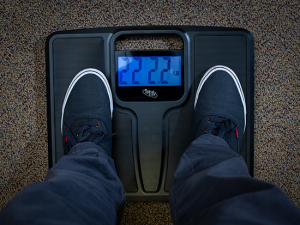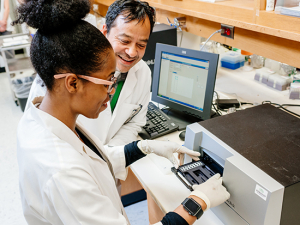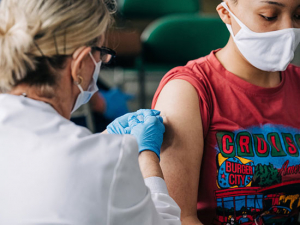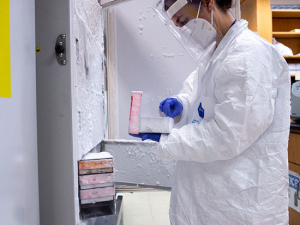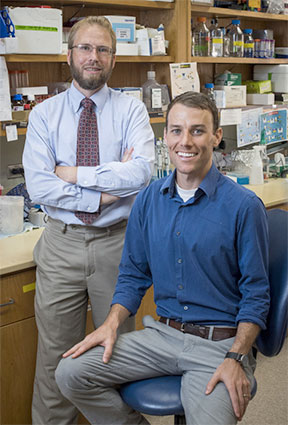 Adam Wende, left, Mark PepinUAB researchers have now described an underlying mechanism that reprograms the hearts of patients with ischemic cardiomyopathy, a process that differs from patients with other forms of heart failure, collectively known as dilated (non-ischemic) cardiomyopathies. These findings, published in Nature – Laboratory Investigation, point the way toward personalized care for ischemic cardiomyopathy.
Adam Wende, left, Mark PepinUAB researchers have now described an underlying mechanism that reprograms the hearts of patients with ischemic cardiomyopathy, a process that differs from patients with other forms of heart failure, collectively known as dilated (non-ischemic) cardiomyopathies. These findings, published in Nature – Laboratory Investigation, point the way toward personalized care for ischemic cardiomyopathy.
The study used heart tissue samples collected during surgeries to implant small mechanical pumps alongside the hearts of patients with end-stage heart failure. As a routine part of this procedure, a small piece of heart tissue is excised and ultimately discarded as medical waste. Investigators acquired these samples from the left ventricles of five ischemic cardiomyopathy patients and six non-ischemic cardiomyopathy patients, all men ages 49-70.
| Read the full story at uab.edu/news. |
The research team, led by Adam Wende, Ph.D., assistant professor in the UAB Department of Pathology, found that epigenetic changes in ischemic cardiomyopathy hearts likely reprogram the heart’s metabolism and alter cellular remodeling in the heart. Epigenetics is a field that describes molecular modifications known to alter the activity of genes without changing their DNA sequence.
The Wende-led study employed a wide array of bioinformatics tools. First author Mark Pepin used publicly available programs to create a fully automated computational pipeline, which is provided as an online supplement to the paper. This protocol, written in the R programming language, allowed the investigators to both analyze their multi-Omics datasets and compare their findings to those of animal-based studies and public data repositories. “Supplying the coding scripts,” Wende said, “is our way of demonstrating the rigor and reproducibility that should be expected of any bioinformatics study.”
Pepin, a sixth-year M.D.-Ph.D. student at UAB, is completing the Ph.D. portion of his training in the Medical Scientist Training Program.

